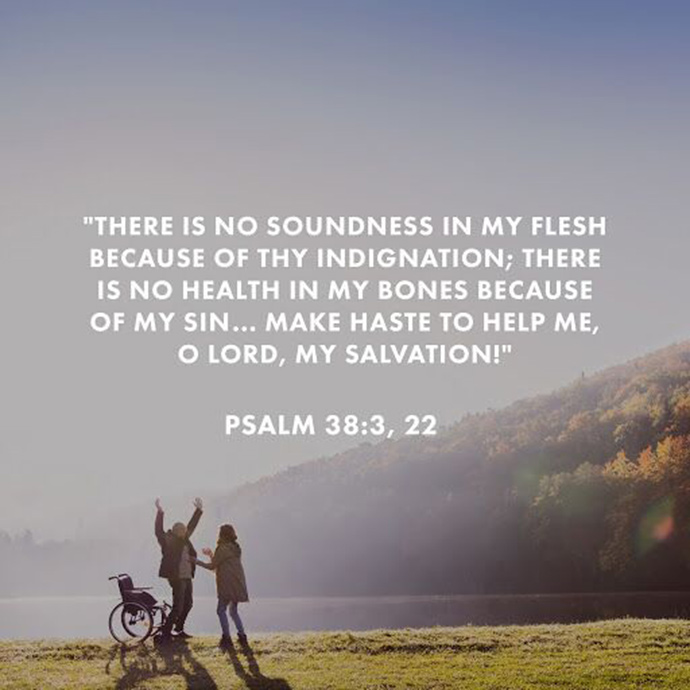
Throughout the Old Testament, the radical monotheism of Israel presents a rather narrow perspective that anything and everything which befalls an individual or group is within the work of the Lord. The Lord is the source of both blessing and cursing, wounding and healing.
In Psalm 38, we are presented with the dire suffering of an individual to the extent of their being “no health in my bones.”
While this psalm must be read with a degree of allegory, considering the extent of sickness and pain described by the author would put almost anyone in the grave, the psalmist does accept a degree of responsibility for their plight. The Lord is the cause of their suffering and illness, and yet concurrently, almost paradoxically, the psalmist is aware of their sin as the cause of such calamitous effect.
Despite its rather bleak outlook, the psalmist moves through their experience with a degree of respect for the Lord’s enacted judgement of their righteousness. The psalmist does not see themselves as the innocent suffering, but rather the unjust rightly punished for their sins. Such a perspective is troubling to many modern readers who would not wish to directly link the suffering of any, much less the innocent, to the work of the Lord.
Even still, the Lord is present in all things, working redemption in all things.
Whether you agree with the perspective or not, the psalmist sees the Lord in both their suffering and their healing. The Lord is a God of both wrath and salvation who brings death and life. The psalmist understands their illness as a way in which the Lord gets their attention, pointing out their sin, and gives opportunity for repentance and amendment of life.
The psalmist believes then that when they return to righteousness, the Lord will restore their health.
Even without giving specific causation, lying sick in bed affords a time of prayerful reflection for anyone. Paying attention to our spiritual temperature and reflecting upon our sin is an important spiritual discipline.
As Charles Wesley writes: “I want a principle within of watchful, godly fear, a sensibility of sin, a pain to feel it near. I want the first approach to feel of pride or wrong desire, to catch the wandering of my will, and quench the kindling fire.”
Rev. Jacob Smith is Senior Pastor of Atlanta First United Methodist Church, Atlanta, Texas, near Texarkana. If you are in the area, Jacob and the rest of his congregation would love to have you stop by to worship with them.
Falling into the Psalms is brought to you by the Communications Department of the Texas Annual Conference of the United Methodist Church. To be considered as a future blogger, please contact Shannon W. Martin, Director of Communication at
